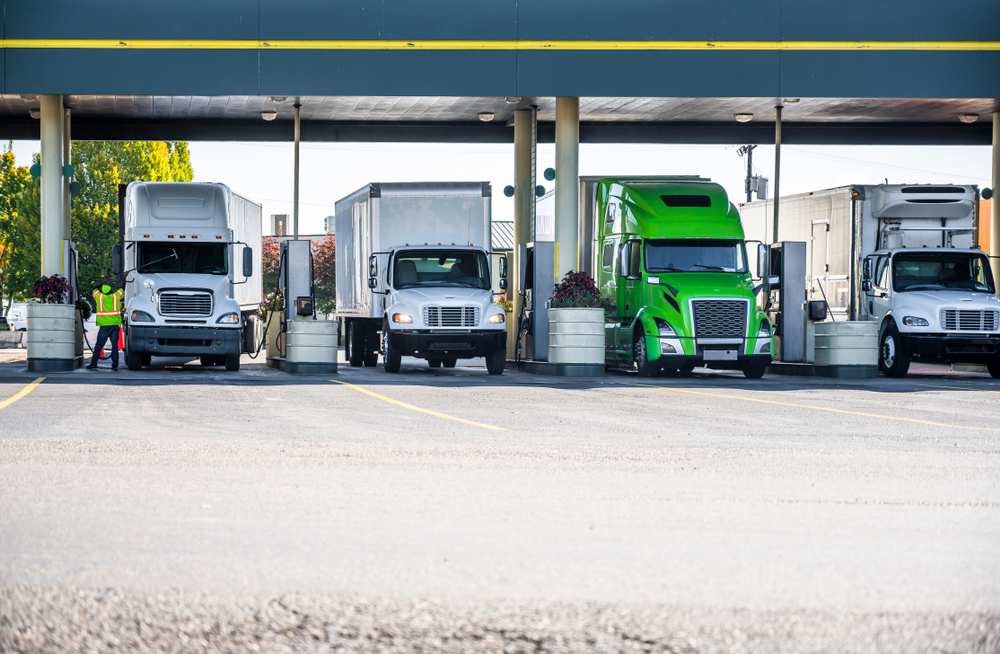
Daimler Truck North America (DTNA) has ceased accepting orders for new diesel-powered trucks and buses in Oregon, citing compliance challenges with the state’s implementation of Advanced Clean Trucks (ACT) regulations. This move, confirmed in late December 2024, impacts Freightliner, Western Star, and Thomas Built Buses, key brands in DTNA’s portfolio. Rival manufacturers Volvo Trucks North America (VTNA) and Mack Trucks have opted to limit their diesel sales in Oregon rather than halt them entirely, adding to the industry-wide disruption caused by the state’s emissions mandate.
The ACT Rule and Compliance Challenges
Oregon adopted the ACT rule in November 2021, aligning with California’s emissions standards. The rule requires truck manufacturers to sell an increasing proportion of zero-emission medium- and heavy-duty vehicles annually, starting with model year 2025. For tractors, this starts at 7%, and for rigid trucks, it begins at 11%. Truck makers can generate and bank credits for early compliance based on zero-emission truck sales from model years 2022-2024.
DTNA’s pause on sales stems from discrepancies in how Oregon and California interpret compliance requirements. While California bases credits on zero-emission vehicle sales codes, Oregon initially required DMV registration to issue credits—a factor DTNA cannot control. This uncertainty left the company unable to predict its credit balances, jeopardizing its compliance efforts.
Sean Waters, DTNA Vice President of Product Integrity, emphasized the need for consistent interpretation between states, stating, “We want Oregon to interpret the rules in the same way as California does.”
Economic and Operational Implications
The halt affects eight Freightliner and Western Star dealerships across Oregon, including those operated by Freightliner Northwest and Penske Automotive Premier Truck Group. DTNA sold over 1,500 diesel vehicles in Oregon in 2023, underscoring the economic impact of the pause.
Other manufacturers, including Kenworth and International Motors, have continued selling diesel trucks in Oregon, while Peterbilt has declined to comment on its plans. The situation highlights the varying strategies manufacturers are adopting to navigate the new regulations.
Insufficient Infrastructure and Industry Concerns
The ACT rule has drawn criticism from trucking organizations, particularly due to Oregon’s lack of charging infrastructure to support zero-emission vehicles. The state currently has only one operational battery-electric charging station, with estimates suggesting it will need between 5,000 and 20,000 chargers to meet ACT requirements.
Jana Jarvis, President of the Oregon Trucking Associations (OTA), called for a two-year delay in implementation, citing risks to dealerships and OEMs. “There’s too much uncertainty in this approach,” Jarvis said, noting that some businesses might hold on to older trucks longer or relocate operations outside the state.
Steps Toward Resolution
In response to DTNA’s concerns, Oregon’s Department of Environmental Quality (DEQ) admitted to a “miscommunication” regarding credit requirements and clarified that DMV registration would not be necessary for compliance. DEQ has since adjusted the compliance timeline, extending the deficit makeup period from one to three model years and tying compliance to delivered vehicle sales instead of when trucks reach buyers.
DTNA and DEQ continue discussions to resolve the issue, with the possibility of a resolution as early as mid-January 2025. Despite these efforts, the pause in sales underscores broader concerns about the feasibility of rapid emissions mandates without sufficient infrastructure and clearer regulatory guidance.
As Oregon grapples with implementing ACT standards, the trucking industry faces economic pressures, logistical challenges, and a pressing need for clarity to support a smoother transition to zero-emission vehicles.
Source:
https://www.ttnews.com/articles/dtna-oregon-diesel-truck-sales











Leave a Comment